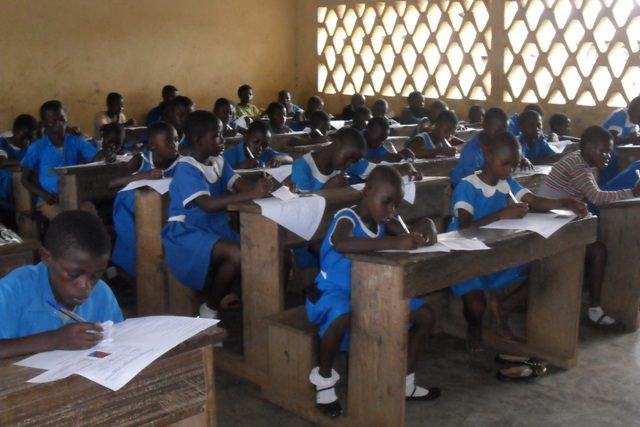In Burkina, more than one million children are currently affected by school closures with 6,134 learning institutions closed in February 2023, UNICEF Burkina reported, referring to a report from the Ministry
of National Education.
At the end of February 2023, 6,134 schools were closed due to insecurity, an increase of 44 percent since May 2022 when 4,258 schools were not operating, according to a monthly statistical report from the Ministry of National Education on Education in Emergencies, dated February 28, 2023.
Of eight schools, only two were operational in Pama, a blockaded town in the east of the country. This region, along with the Sahel and the Boucle du Mouhoun, is the most affected by school closures, with between 1,000 and 1,200 schools closed each.
The government said the school closures affected 1,050,172 students and 31,077 teachers, of whom about 6,300 were redeployed to other schools in the interior of the country.
“Only a quarter of the affected children have been reassigned to new classrooms. The majority of them have not regained access to education, which deprives them of their lives as children and diminishes their chances of becoming adults and independent citizens,” Hassane Hamadou, NRC’s Director in Burkina Faso said.
Unicef Burkina estimated that girls are 2.5 times more likely to drop out of school than boys in crisis situations.
Burkina is now home to nearly half of the schools closed in West and Central Africa due to insecurity. While 1,762 schools have stopped functioning in Mali, 1,344 in the DRC, 878 in Niger, 3,285 schools in Cameroon, 181 in Nigeria, 13 in the Central African Republic and 134 in Chad.
“We are witnessing an accelerated assault on education. Teachers are threatened and parents are afraid. Children are paying the highest price. When a child is not in school, he or she is more likely to be exploited, to be a victim of violence and trafficking, and even to be recruited by armed groups,” warned UNICEF Representative in Burkina
Faso Sandra Lattouf.
UNICEF Burkina and its partners are calling for “action now so as not to lose the next generation and redouble efforts to strengthen emergency and alternative education solutions.”
“The longer this situation continues, the worse it gets, the harder it will be to reverse the trend and protect their future,” Hassane Hamadou insisted.
Basic social services are regularly targeted by jihadist groups.
DS/ac/fss/abj/APA


